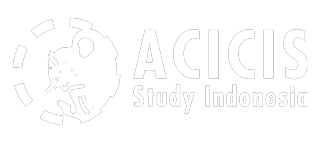PUSKAPA (Center on Child Protection and Wellbeing at Universitas Indonesia) was incepted in late 2009 at Universitas Indonesia and established in early 2010. We position ourselves as data-driven, interdisciplinary, and effective in communicating evidence-based solutions to complex problems affecting children, families, and communities. For policymakers in Indonesia, PUSKAPA is a partner who can help their efforts in improving children’s access to health, education, justice, and social care.
PUSKAPA does this through:
- Research to generate the scientific evidence that is necessary to formulate durable solutions to the inequities affecting children’s wellbeing
- Policy advocacy to promote approaches that protect the most vulnerable populations through program design, management, and evaluation, and to elevate the policy dialogue on child wellbeing by engaging with the best scientific evidence;
- Capacity building to prepare the next generation of researchers and practitioners through the provision of relevant training, mentoring, and field experience.
For an organisation like PUSKAPA, sustainability means turning available resources into long-term investment of institution, knowledge, and human capital building. We cannot do it alone. It can only be achieved when partners understand and are willing to make that kind of investment in PUSKAPA, beyond short-term or one-off procurement of service. We call this a strategic partnership. Currently, we have been collaborating with our strategic partners, such as Columbia University, Bappenas, KOMPAK, UNICEF, USAID, AIPJ, and many others (both from government and non-government).
PUSKAPA’s focus areas:
- Legal Identity and Civil Registration & Vital Statistics (CRVS)
PUSKAPA works to help the government provides legal identity documents for all children and adults, regardless of their gender, socioeconomic status, and ability. These legal identity documents should facilitate their access to health, education, and social services, protection, and economic oportunities. At the same time, PUSKAPA works to ensure that civil registration produces complete and accurate population-based vital data (especially birth, death, causes of death, marriage, divorce, migration, and adoption), and that these statistics inform child wellbeing programs and policies.
Child-Centered Social Inclusion and Protection
PUSKAPA works to help the government develops and implements an integrated child welfare and protection system. The system should serve all children regardless of their gender, identity, and ability, and services are locally available, accessible, and accountable. The system should 1) prevent separation from families and childhood adversities through provision of accessible healthcare, basic needs of food and nutrition, quality education, and responsive social care and protection; 2) provide early detection of violence and risks of violence and provision of immediate and comprehensive responses to incidents of violence; and 3) linked with economic strengthening and livelihood support for parents and families.
Access to Justice
PUSKAPA is an expert and works to generate and introduce evidence in formulation, review, and evaluation of regulations, to help the government and the court implement the juvenile justice system through effective diversion mechanisms and legal representation for children, to promote an inclusive family law system, and to realize child rights principles within broader justice reform agenda in Indonesia.
Intern Duties
The intern will work as research and advocacy assistant, under the guidance and supervision of the Co-Directors and technical coordination of Columbia University, responsible for the planning, implementation, monitoring and evaluation of the activities relating to increasing people’s access to the broad array of social protection, access to justice, CRVS, and inclusive development.
Basically, the intern will collaborate with PUSKAPA’s technical and operations team in:
- Supporting the development and execution of PUSKAPA’s research agenda and to produce evidence-based knowledge products to support PUSKAPA’s advocacy and communication strategy
- Supporting the development, testing, and application of advocacy and capacity development tools such as communication materials, regulations, procedures and mechanisms, training modules necessary
- Supporting advocacy efforts and technical assistance at national, provincial and district level to relevant stakeholders to ensure overall focus on evidence-based policies, strategic budgeting and human resources allocation
Expectations
No prior knowledge of the child protection and wellbeing policy context in Indonesia is presumed, however basic familiarity with PUSKAPA’s recent and ongoing work (available on website) is expected. We expect the intern to be able to communicate and write in either Bahasa Indonesia or English. The intern should also be prepared to work in a fast-paced environment, often with tight deadlines. PUSKAPA’s approach involves frequent teamwork, which calls for flexibility, open communication, and, most important, good sense of humour.
Work Hours
PUSKAPA work hours regularly starts at 9.00 AM – 5.00 PM (WIB) Monday through Friday, although the hours may be flexible based on work volume.
PUSKAPA’s Location
Pusat Kajian & Advokasi Perlindungan & Kualitas Hidup Anak
(Center on Child Protection and Wellbeing)
Universitas Indonesia
Gedung Nusantara II FISIP, Lantai 1, Kampus UI, Depok, 16424
T (021) 78849181
F (021) 78849182
www.puskapa.org
Facebook: PUSKAPA
Twitter: @puskapa
